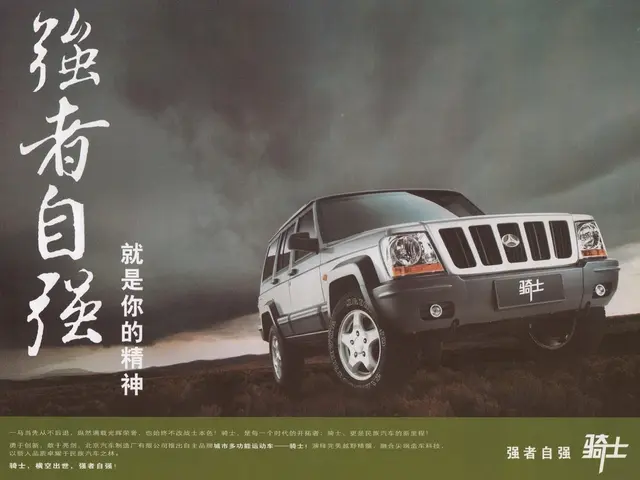Protests continuing in Belgrade, yet Serbia persists with its European Union strategy
In the heart of Eastern Europe, the ongoing protests in Serbia have sparked concern and criticism from the international community. The demonstrations, which began as a student-led anti-corruption movement following the tragic railway station collapse in Novi Sad last November, have evolved into the longest mass protests the country has seen since 2012.
The international community has been increasingly vocal about their worries regarding the violent crackdown on these protests and the authoritarian tendencies of President Aleksandar Vučić's government. The protests, originally peaceful, have turned violent partly due to provocations attributed to government-linked hooligan groups and police brutality.
Rasa Nedeljkov of CRTA (Centre for Research, Transparency, and Accountability) has stated that there seems to be no difference between the party and the state anymore in Serbia. This sentiment is echoed by international observers, who have accused the government of sending pro-regime hooligans to provoke violence and suppress the protests, turning initially peaceful demonstrations violent.
The government's actions against demonstrators have drawn accusations of excessive force and brutality. Documented cases of beatings and unlawful detention have been witnessed and reported by protestors and human rights observers internationally. Vučić’s regime considers these protests an attack on the state, with threats to declare a “state of emergency” in response to continuing unrest and clashes, deepening concerns among international rights groups and Western governments about the erosion of rule of law and civil liberties.
While explicit statements from key international governments or organizations are not detailed, the tone and framing from international media and human rights organizations clearly indicate a critical stance toward Vučić's policies, especially regarding democratic backsliding, police violence, and intolerance of opposition.
Amidst this politically charged phase, Christian Stocker, the Federal Chancellor of Austria, visited Serbia. During his visit, the EU accession perspective and intensified economic cooperation were discussed. Stocker advocates opening the next negotiating cluster in the accession talks and supports gradual integration before full membership. He stated that a credible accession perspective for Serbia and the entire region is a core concern of Austria's foreign policy.
However, President Vučić has dismissed calls for new elections and described the protests as "illegal" and "violent." He also could not guarantee that new chapters would be opened in the EU accession talks. Nemanja Nenadic of Transparency Serbia speaks of "legalized corruption for public infrastructure projects without competition through interstate agreements or special laws, like for the Expo 2027."
CRTA calls for more pressure from the international community, stating that they should not exchange European fundamental values for trade, bilateral economic agreements, and cooperation on migration. The Western Balkans states, according to Christian Stocker, "belong inseparably to the European family."
The international reaction to Vučić's policies and the protests in Serbia is muted, much to the frustration of many Serbs. Vienna and Brussels want to see Serbia in the European Union, but the path forward remains uncertain. As the protests continue, the future of democracy in Serbia hangs in the balance.
- The ongoing protests in Serbia, rooted in anti-corruption issues and war-and-conflicts-related concerns, have sparked a critical stance from the international community, particularly regarding policy-and-legislation and politics.
- Amidst the violence and accusations of excessive force, the international community is increasingly addressing the general-news of Serbia, with a focus on crime-and-justice and human rights violations.
- Despite the concerns and accusations, the international community, including Western governments and organizations, continues to discuss migration and economic cooperation with Serbia, indicating a complex migration policy-and-legislation approach.





